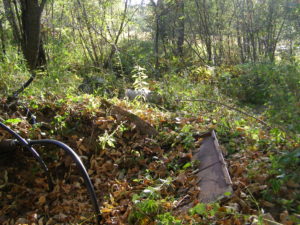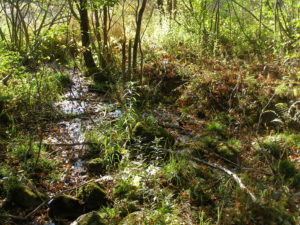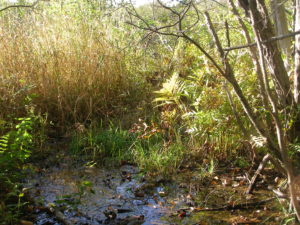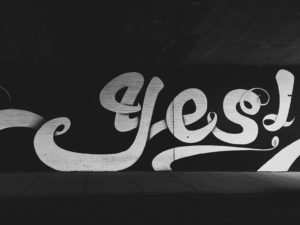Wellspring of Love
A few weeks ago I wrote about romance and in that post I confessed that at this point in my life I’m not sure what love actually is. A strange admission from a reasonably intelligent, well-educated, middle-aged broad with two marriages and two children in her history.
Writing that post enabled me to clearly separate romance from love; though I suppose love might include a little romance from time to time. I’m convinced romance is not synonymous with love, however. I began to make a mental list of what love is not, as I often approach things from the back door first. Love is not a synonym for:
- Romance
- Sex
- Slavery
- Control
- Possession
- Obsession
- A suicide pact
- Abuse
- Fear
- Duty
- Obligation
- Enabling
- Obedience
All right. So what is love? My Randall House Collegiate Dictionary says it’s “a profoundly tender, passionate affection for a person” or “a feeling of warm personal attachment or deep affection.” This definition doesn’t satisfy me at all. My rewrite is that love is a feeling of warm, tender connection and deep affection. I don’t think love is always passionate and I don’t like the word attachment. If anything, love implies to me an attitude of nonattachment.
But what about unrequited love? What about failed love or withdrawn love or love as a weapon or a tool? What about the inability to accept love, or feeling unloved though being told we are? What about those who make us feel our love is ugly, twisted, shameful or inadequate?
I’m always playing with words in my head. This week it’s “What is love?” and “What is a crone? and “What are the differences between compassion, empathy and sympathy?” I lie down with those inquiries and wake up with them. I turn them over while I shower, cook bacon, wash dishes, take my morning walk, practice Tai Chi and drive to town. I’m constantly scribbling notes.
I gave a neighbor a lift this morning and asked him to talk to me about compassion, sympathy and empathy. Poor man. He didn’t know what to make of me.
Yesterday, during my frosty morning walk, I dove into a stand of staghorn sumac below the barn and went to visit the spring. This is a daylight spring seeping out of the hill on which the barn and house stand. A long time ago, someone dug a well there, and at one time a pump and tank were installed, along with a system of black plastic outdoor lines to carry water to and from the barn, the garden, and down through the woods to, presumably, crops in the fields below. All the equipment is many decades old now, fallen over and covered with leaves and moss. The well is protected by a round cement cap, much too heavy for me to lift alone (drat!).
This spot is hidden in a thick tangle of vine, briar and trees. We rarely go in there, though it’s in close proximity to the barn.
It’s fall and it’s been dry, but the drainage where the spring emerges is clearly marked by rocks and moss. The ground underfoot felt soft, and when I brushed away the leaves I found moist earth. A yard or two below that is mud, and then a trickle of water and then, at the bottom of the hill, a quiet film of water, barely moving, reflecting the tree-laced sky. Right now It’s full of apples dropped from an apple tree that grows alongside it.
As I slipped and slid, tripping over vines and getting scratched by hawthorn and raspberry bushes, feeling the velvety moss coating the rocks and stepping cautiously on rotting wood, it occurred to me that love is like this spring.
I’ve always thought of love as an action verb, something I do to another in exchange for receiving the same. I thought I knew what I meant when I used the word, though I was never challenged to define it exactly. For me it’s been a catch-all term, synonymous with dozens of other, more specific actions: Want, need, desire, honor, trust, respect, care about, listen to, defend, make excuses for, enable, protect, support, believe in, etc., etc.
But what if love is just being? What if it has no object, but just is?
This little spring is absolutely true to itself. Water drains off the hillside above us and carves a path through the earth and rock until it emerges and runs down the surface at the foot of the hill. We pay no attention to it whatsoever. It’s reliable, predictable and faithful, but not because anyone is looking. Its unobtrusive, quiet presence has created a lush pocket of life, a complex system of plants, fungi, animals and insects, but ten yards away on the open hillside it’s invisible.
What if I make a choice to allow my feeling of love to run through my life in the same way the spring runs through and over the ground? What if I carry within me a wellspring, a hidden cleft, moist, fertile, filled with life, rich in sensuality, simply because it’s an expression of self? If others find their way to it, sit a while, bathe, drink, and allow it to nourish and refresh them, they’re welcome. If others can’t see it, or don’t value it, or dislike the perfume of rotting wood and leaves or the feel of plush moss under their bare foot, it’s nothing to do with me. Not everyone chooses to make their way through raspberry and hawthorn bushes, after all.
What if I don’t need anything in return because I’m giving nothing away? Perhaps the act of love can be a simple state of being, not a totality, not a hurricane of passion and lust, not a romantic fairytale, not a prison and torture chamber, but a spring, a waterway, a shining thread I can share without depletion. Can I allow it to seep quietly up through the roots of my experience, even if no one else ever finds it, wants it, returns it or deems it acceptable?
Our spring is part of a landscape of field and forest, river, pond and stream, rocky hillside and bog. The landscape contains many forms and embraces many systems of life. Birth and death happen on this land. Disease, erosion and flood happen on this land. Prey and predators carry out their sacred dance of balance here. Blood, bone, fur, feather, antler, musk, urine and feces are all here.
I, too, am a complex system of history, memory, belief, thought and feeling. I do not feel love for everyone and everything. My experience of love is that it’s a wild thing; it seeps up where it will and trickles away without warning, taking no account of rules and expectations. I can’t command it and I don’t choose to hold it back. My love doesn’t need anyone’s reception, appreciation, validation or praise.
Love is. I reserve the right to love as I will. I am the keeper of my own wellspring.
All content on this site ©2017
Jennifer Rose
except where otherwise noted




